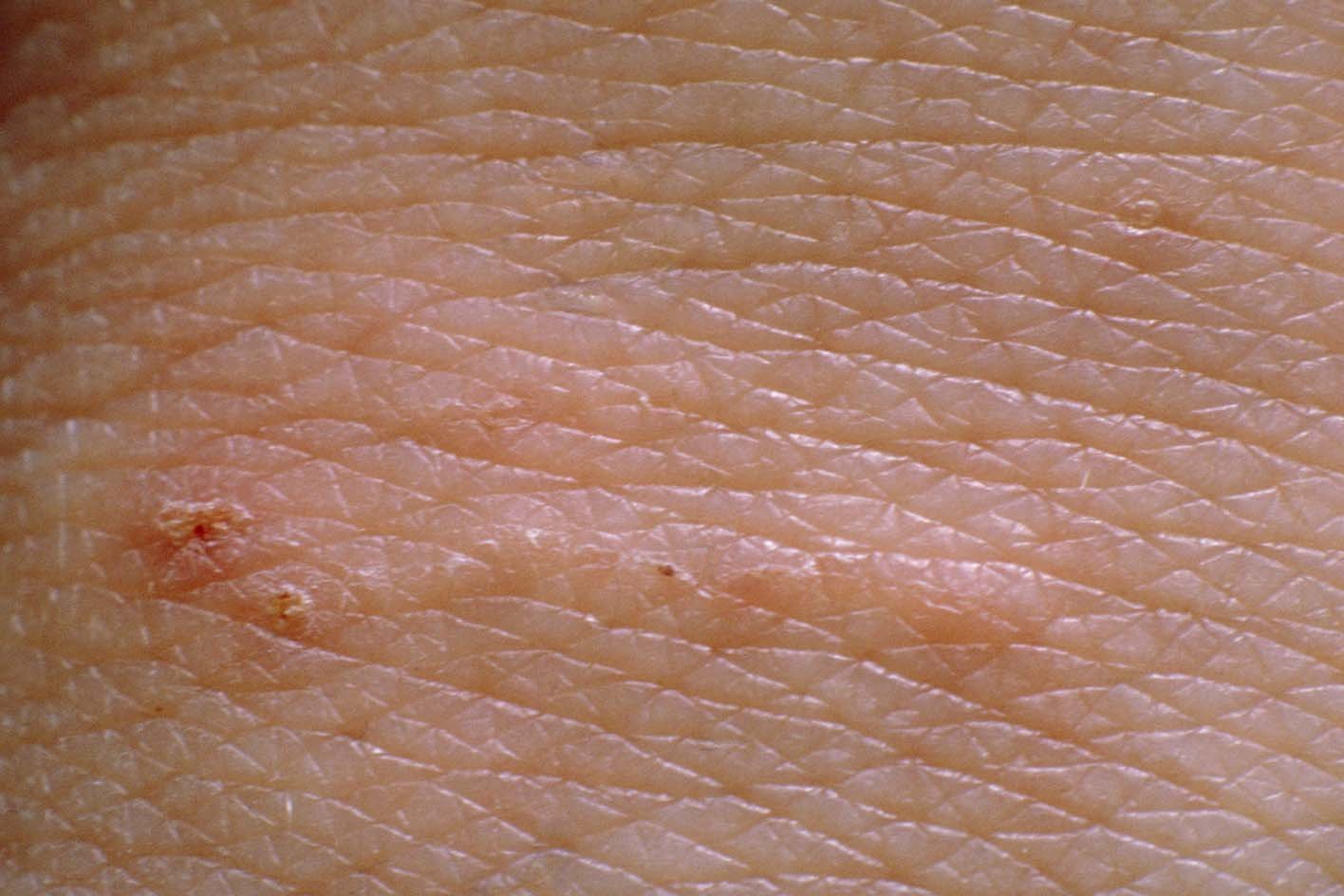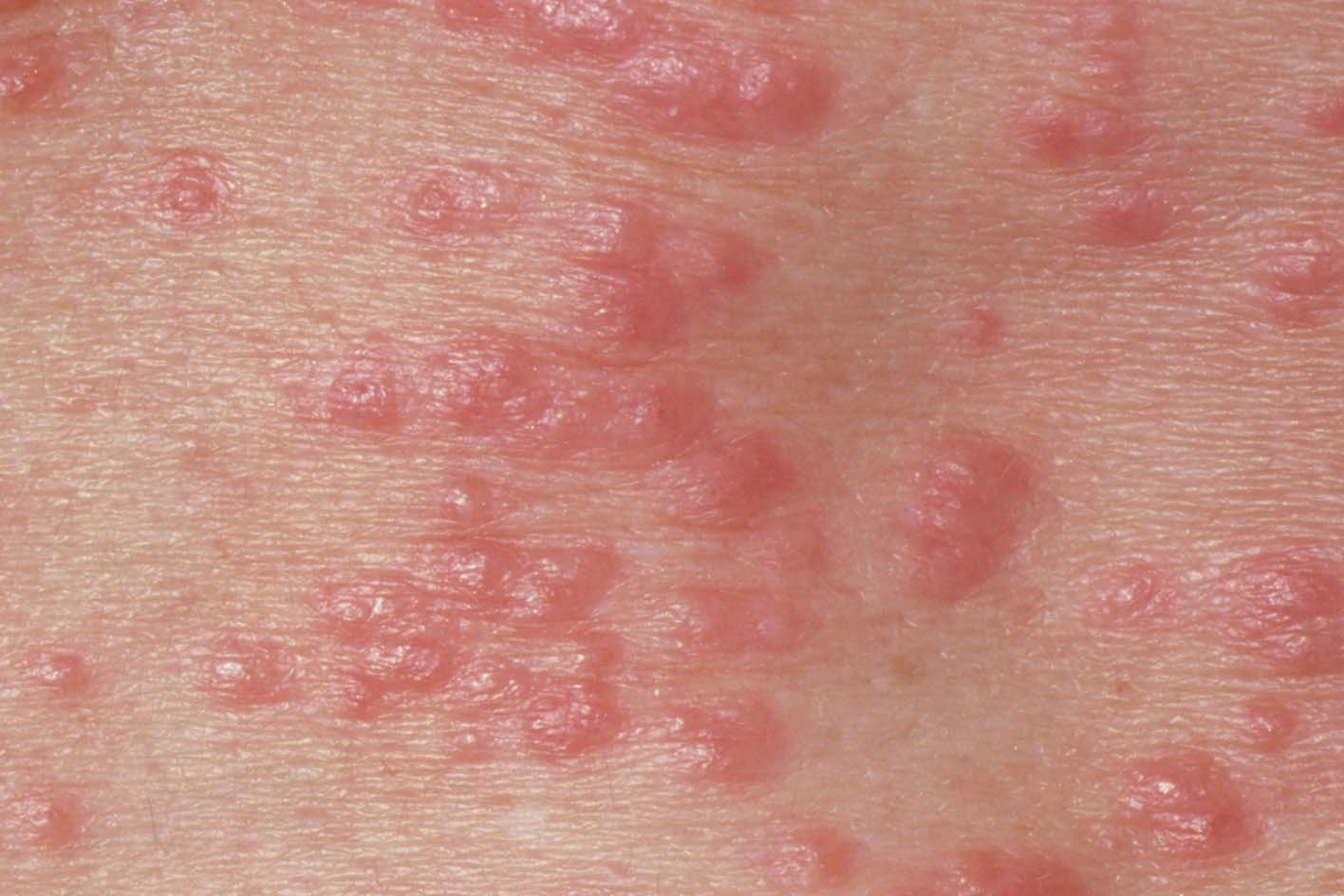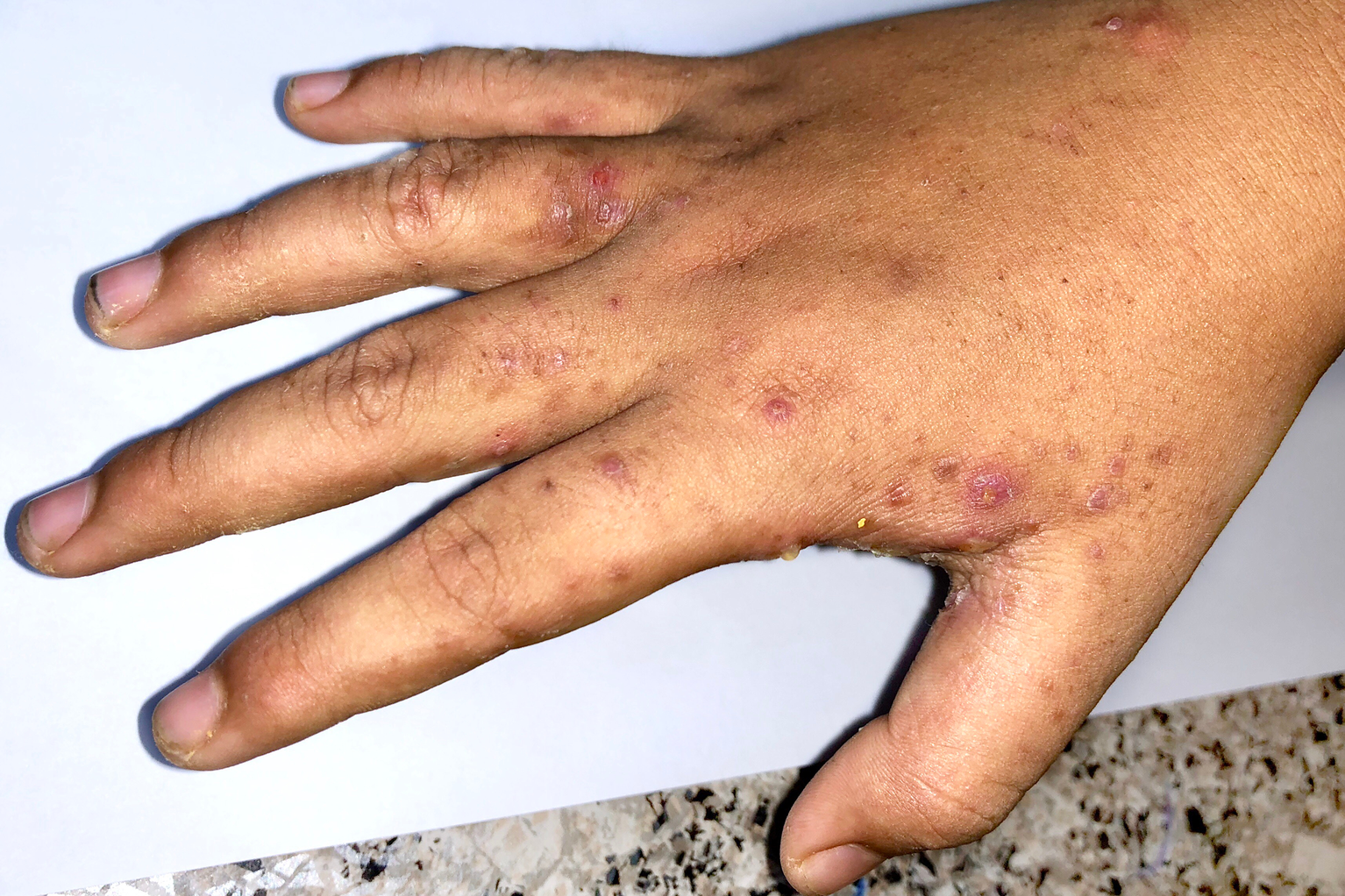Scabies
Scabies is common and can affect anyone of any age.
People working in nurseries, nursing homes or staying in student halls are more at risk of catching scabies.
It should be treated quickly to stop it spreading
Tiny mites lay eggs in the skin, leaving lines with a dot at the end.
Scabies are spread through skin to skin contact
There is no link with poor hygiene and scabies.
You cannot contract scabies from pets.
How do I know if it Scabies?
Scabies symptoms are usually;
- Intense itching, particularly at night
- A Raised rash or spots
The spots appear red in colour, although they can be more difficult to see on darker skin. You will be able to feel the lumps/spots.



The scabies rash usually spreads across the whole body, with the exception of the head.
Older people, the very young and those with a lower or weakened immune system, can develop symptoms in the head region.
When it's not scabies
There are a variety of other things that can cause itchy skin and also rashes in babies and young children
How do I treat it?
Although scabies is not considered a serious condition, it does still need to be treated.
A pharmacist can recommend and supply a cream or lotion, which can be applied to the whole body.
Always read instructions carefully before applying cream and speak with a pharmacist if you are unsure.
You should always let the pharmacist know if you are pregnant or breast feeding.
You will need to repeat the treatment one week later.
Scabies is very contagious and can be spread easily. It may also take up to 8 weeks for symptoms/rashes to appear.
Everyone at your home needs to be treated, even if they are not showing symptoms of infection.
Anyone that you have had sexual contact with in the the last 8 weeks will also need to be treated.
Things you can do during treatment to stop the spread of scabies
Do
- Wash all bedding and clothing in the house at 50 degrees or higher, on the first day of treatment
- Put any clothing that cannot be washed in a sealed bag for up to three days, this will allow the mites to die.
- Stop babies and children from sucking the treatment off their hands by putting socks or mittens on them.
Don't
- Have sex or physical contact until you have finished the full course of treatment.
- Share bedding, clothing, towels or flannels with someone with scabies.
You and your children can return to work and school 24 hours after the second dose of scabies treatment.
Although treatment kills the scabies mites very quickly, the itching may continue for a number of weeks.
When should I contact my GP?
If your skin is still itching 4 or more weeks after you have finished your treatment
For further advice or help with scabies, please click here
We use cookies to help provide you with the best possible online experience.
By using this site, you agree that we may store and access cookies on your device. Cookie policy.
Cookie settings.
Functional Cookies
Functional Cookies are enabled by default at all times so that we can save your preferences for cookie settings and ensure site works and delivers best experience.
3rd Party Cookies
This website uses Google Analytics to collect anonymous information such as the number of visitors to the site, and the most popular pages.
Keeping this cookie enabled helps us to improve our website.

